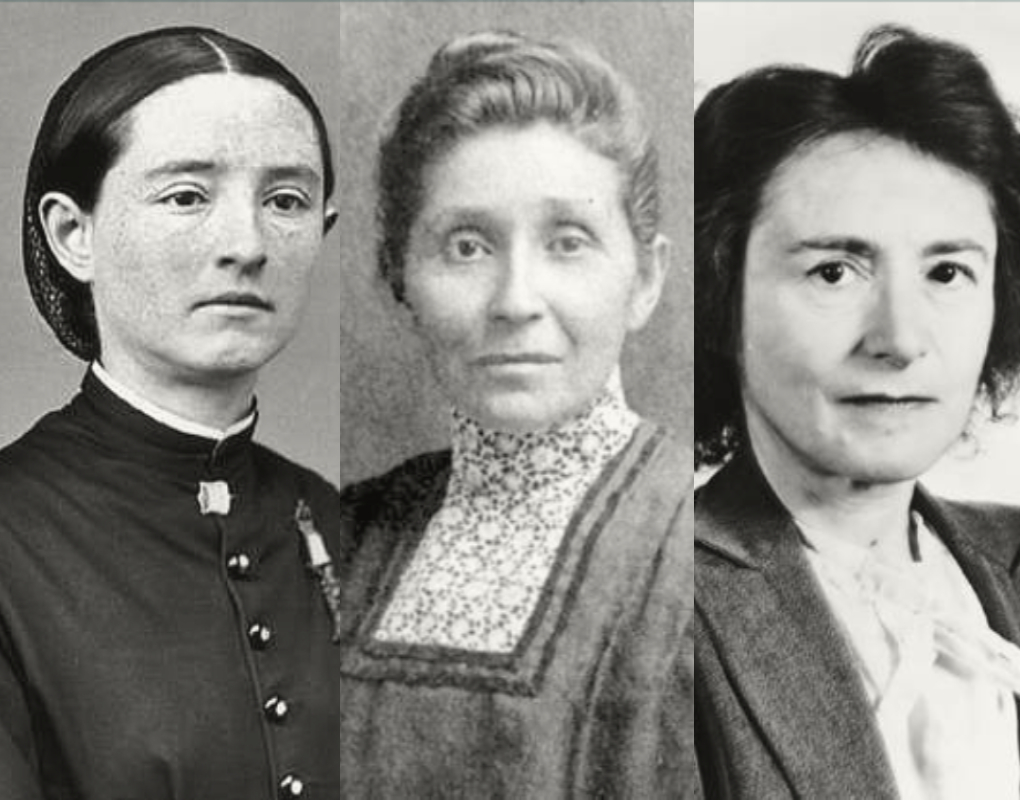Equality and Female Representation in Medicine
For the second week of Women’s History Month, we honor three female physicians who sought justice in medicine. Read their profiles to see how these women used their platforms to encourage change in women’s fashion, provide healthcare to the undeserved, and add positive connotations to the word “immigrant.”
Dr. Mary Edwards Walker (1832-1919)

Known for being the first woman awarded the Congressional Medal of Honor, Mary Edwards Walker was an advocate for women’s rights and the expansion of women in the healthcare industry. Dr. Walker received a medical degree from Syracuse Medical College. She worked at a medical practice before volunteering as a nurse with the Union at the end of the Civil War. For her work during the war, Dr. Walker received the Congressional Medal of honor in 1865. While her presence in the medical field continued until her death in 1919, she spent her later years experimenting with the boundaries clothes created between men and women of the time. She supported the introduction of pants into women’s uniforms and occasionally cross-dressed in defiance of those who were not receptive to these changes in fashion. Click here to read more on Dr. Walker and read reactions to her cross-dressing.
Dr. Susan La Flesche Picotte (1865-1815)

Born on an Omaha Reservation in Nebraska, Dr. Susan La Flesche grew up aware of the lack of female representation and general inclusivity of healthcare. She watched her community struggle with the finances required for medical care while watching Native American people experience rejection from white doctors as well. Dr. Picotte channeled these experiences into inspiration. She became the first Native American woman to receive a medical degree in the United States. After a year interning in Philadelphia, Picotte moved back to Omaha to tend to individuals on the reservation. Before her death, she opened up a hospital on the reservation. To read more about Dr. La Flesche Picotte’s schooling and how it was funded, click here.
Dr. Gerty Cori (1896-1957)

Dr.Gerty Cori had humble beginnings in Prague, Germany, where she attended medical school at the German University of Prague and met her husband. Following a two-year stint at a children’s hospital, she and her husband immigrated to the U.S. following biochemical research offers in Buffalo, New York. Once in America, Dr. Cori and her husband studied the impacts of sugar on mammals and changes in the pituitary. In, 1947 Dr. Cori became the first woman in the U.S. to earn a Nobel Prize in physiology for her research on the “catalytic conversion of glycogen.” Gerty was a member of the American Society of Biological Chemists and The National Academy of Science, among others. In addition, she received several research awards in addition to 5 honorary degrees. To see an extensive list of Dr. Cori’s accomplishments, click here.
At AMO, our goal is to create a more diverse medical field which includes, but is not limited to, female representation. AMO would love to hear your thoughts about Women’s History Month this March in conjunction with females in the medical field. Join the conversation on our Twitter or Instagram. To learn more about the introduction of Women’s History Month and the women who helped to build the world we live in today, click here.
Are you interested in creating a legacy within the U.S. medical world? The first step is a clinical rotation. Explore and apply to those offered with AMO here.







Leave A Comment